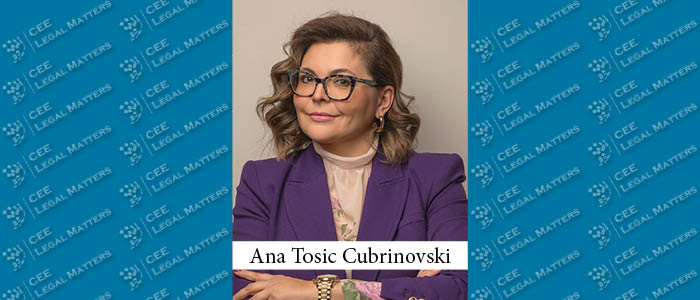A significant labor legal landscape overhaul in North Macedonia, with a long-awaited and long-debated new law being adopted, is what is dominating legal discourse in the country, according to Tosic & Jevtic Managing Partner Ana Tosic Cubrinovski.
“A new law on labor relations is on its way to being adopted – something we have waited on for quite some time now,” Tosic Cubrinovski begins. “It is a very important, general law that unites all industries and the entire private business sector – workers and employers alike and part of the public sector, too. It has a massive societal impact.”
The road to this new law was a thorny one, according to Tosic Cubrinovski. “There have been several attempts in recent years to pass a new law – several texts were suggested from multiple sides, including chambers of commerce, labor unions, industry experts… all were trying to make things better, but it was very difficult.” As she puts it, the old law was “lacking in many places,” partly due to it “failing to have specific definitions of core legal points and notions” and partly because it was simply outdated.
“For example, the old law had only one provision that tackled remote work,” Tosic Cubrinovski continues. Given the way in which workplace setups morphed over the past several years, this was “clearly not enough. The working version of the new law, which is likely to be adopted, provides much-needed definitions and delineations of remote work, home office work,” she explains. Moreover, the new text more closely regulates the way “in which remote work is to be arranged – via a mandatory annex to the labor contract if it is additionally agreed. In this instance, however, I believe that this holds the potential to reduce employee mobility, especially if an annex will have to be created each time the employee shifts from remote work back to office work,” Tosic Cubrinovski says.
Furthermore, Tosic Cubrinovski says that it might be problematic that “the provisions that regulate work from home might conflict with the fundamental rights of the employee, largely because the term ‘home’ is not clearly defined in the new text. For example, whether work from a weekend house or a hotel will be considered as ‘home’ by the employer.”
Finally, other than a few potential issues, Tosic Cubrinovski reports that the new text is an overall step in the right direction. “Other provisions of the text are more advanced and specific to the context of our country. Still, it is difficult to predict in what way the new law will shape the market,” Tosic Cubrinovski concludes.






















